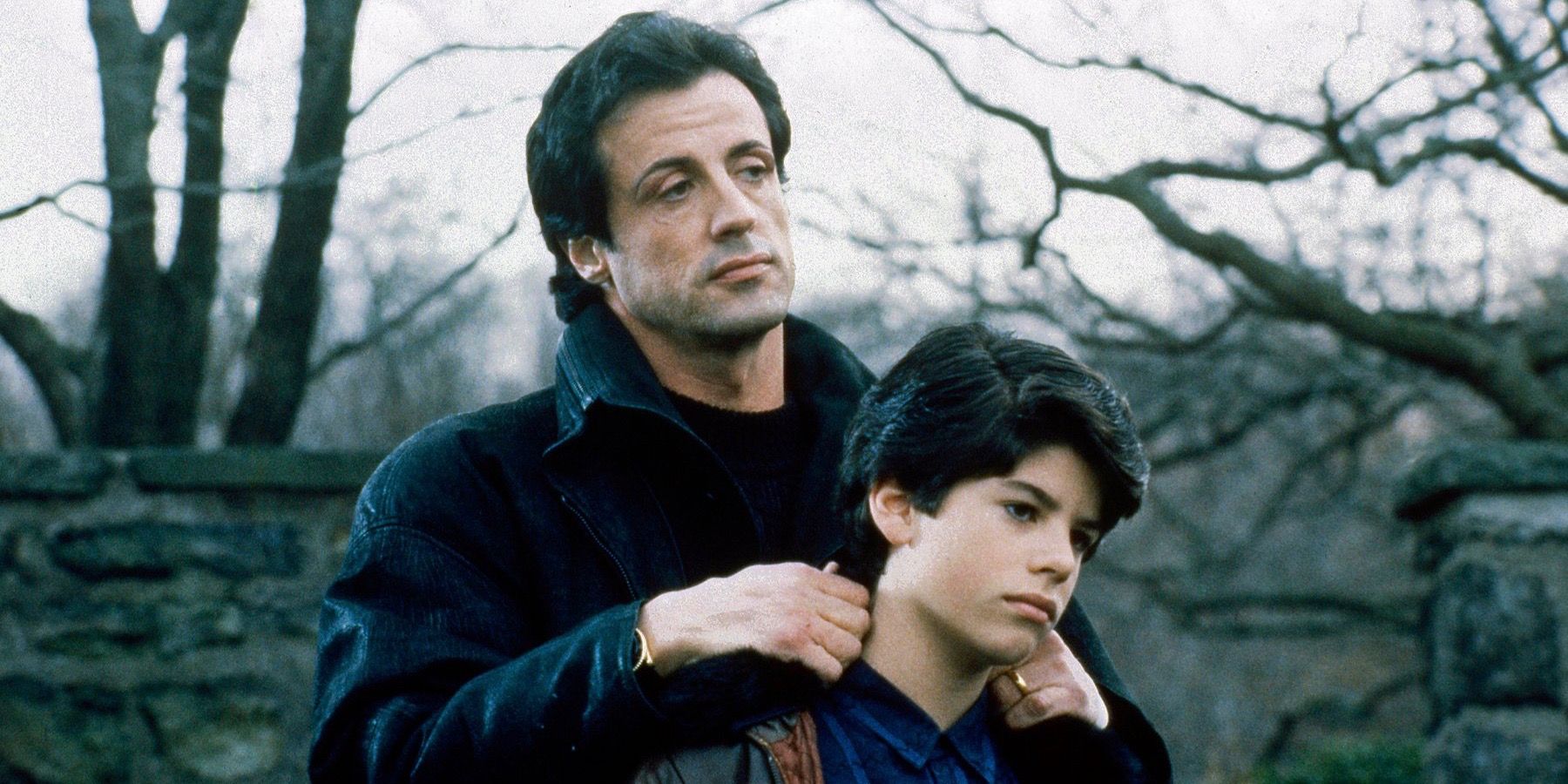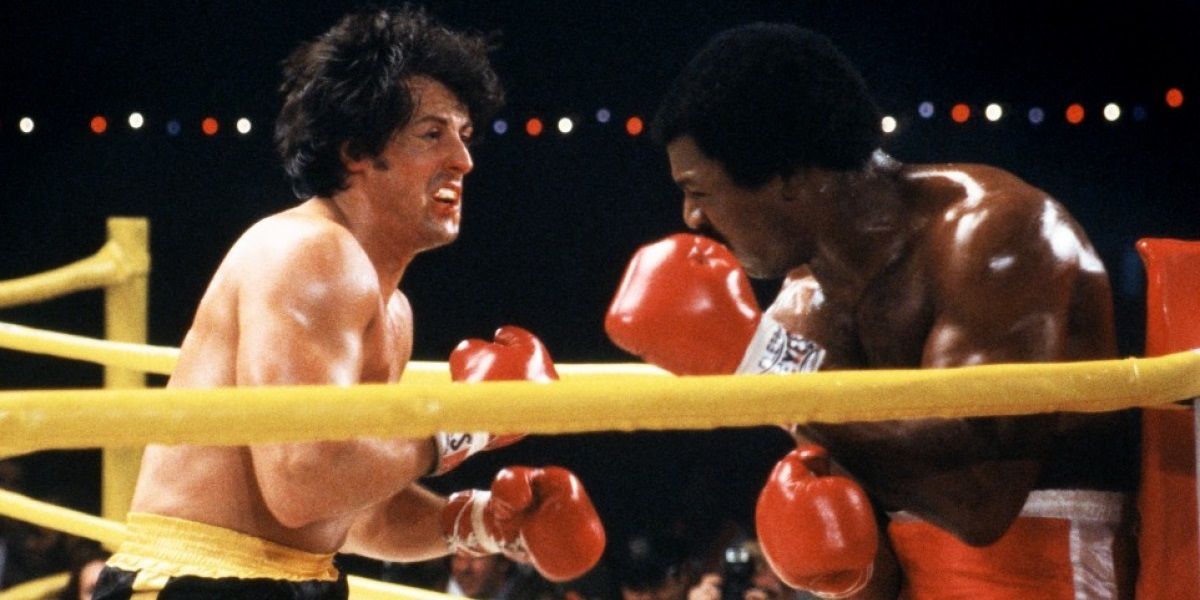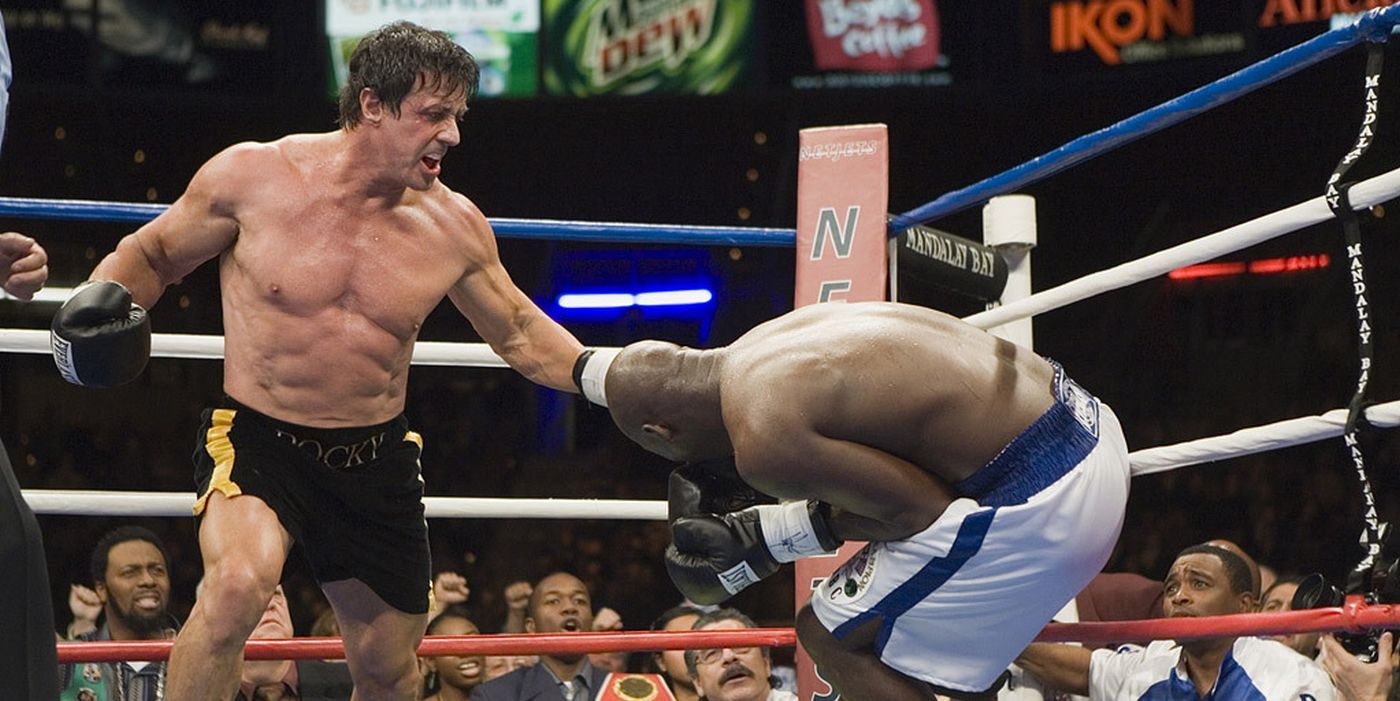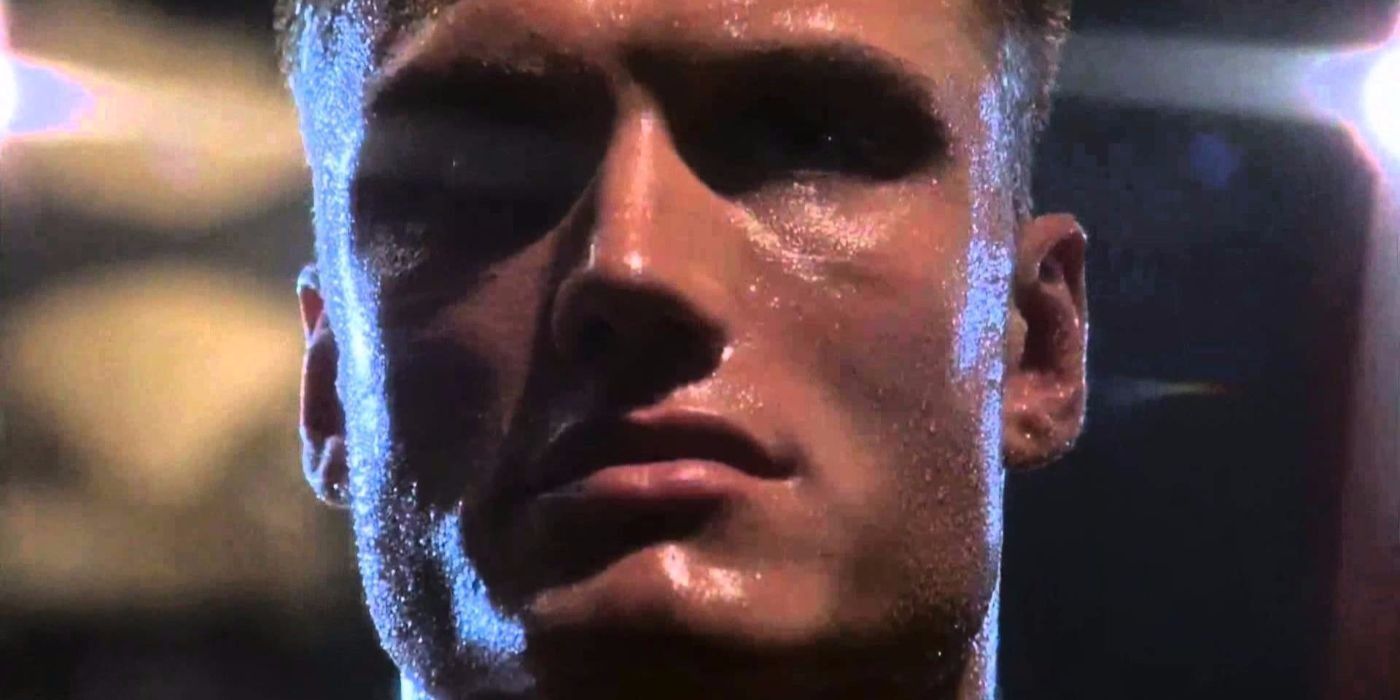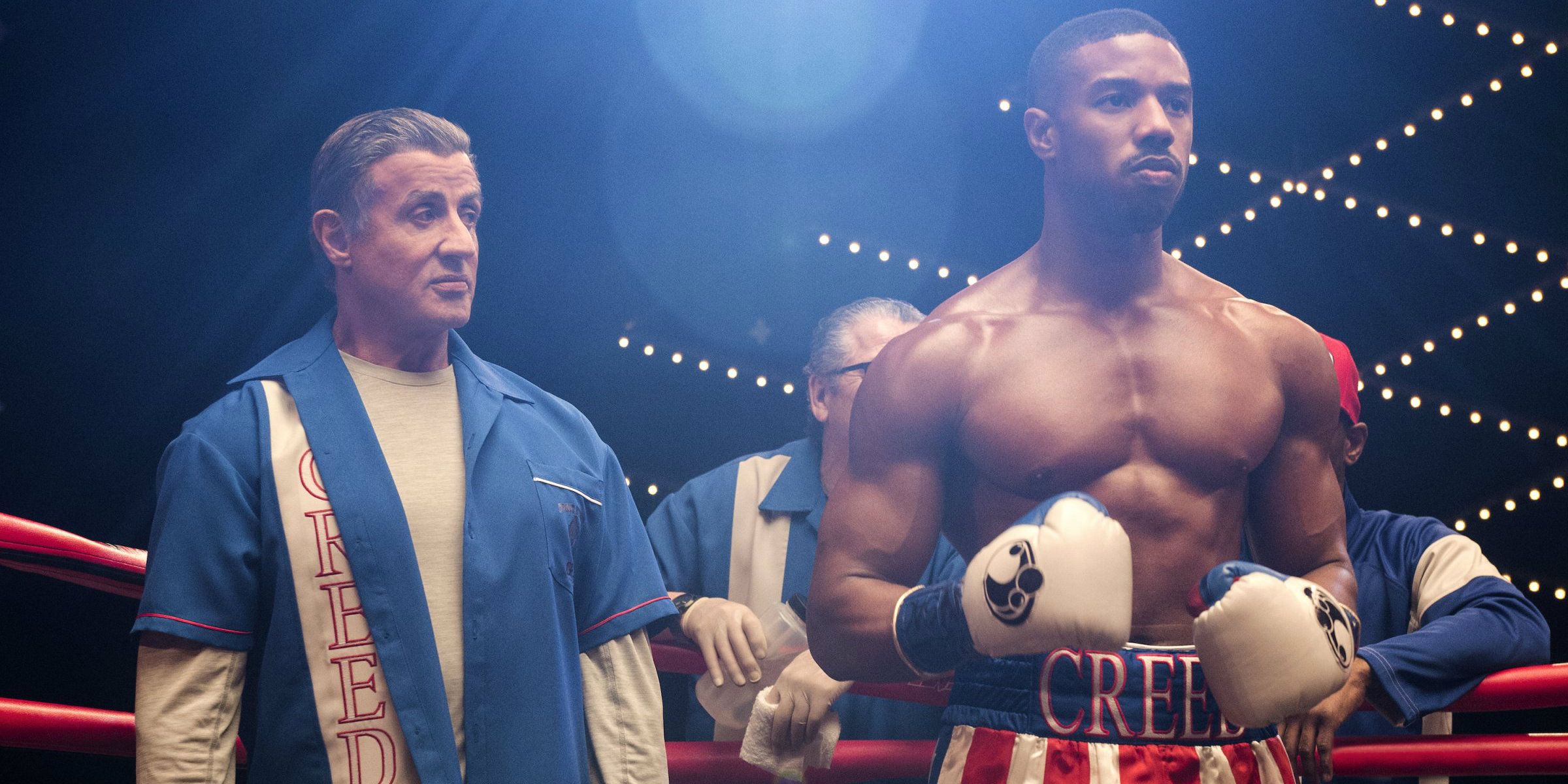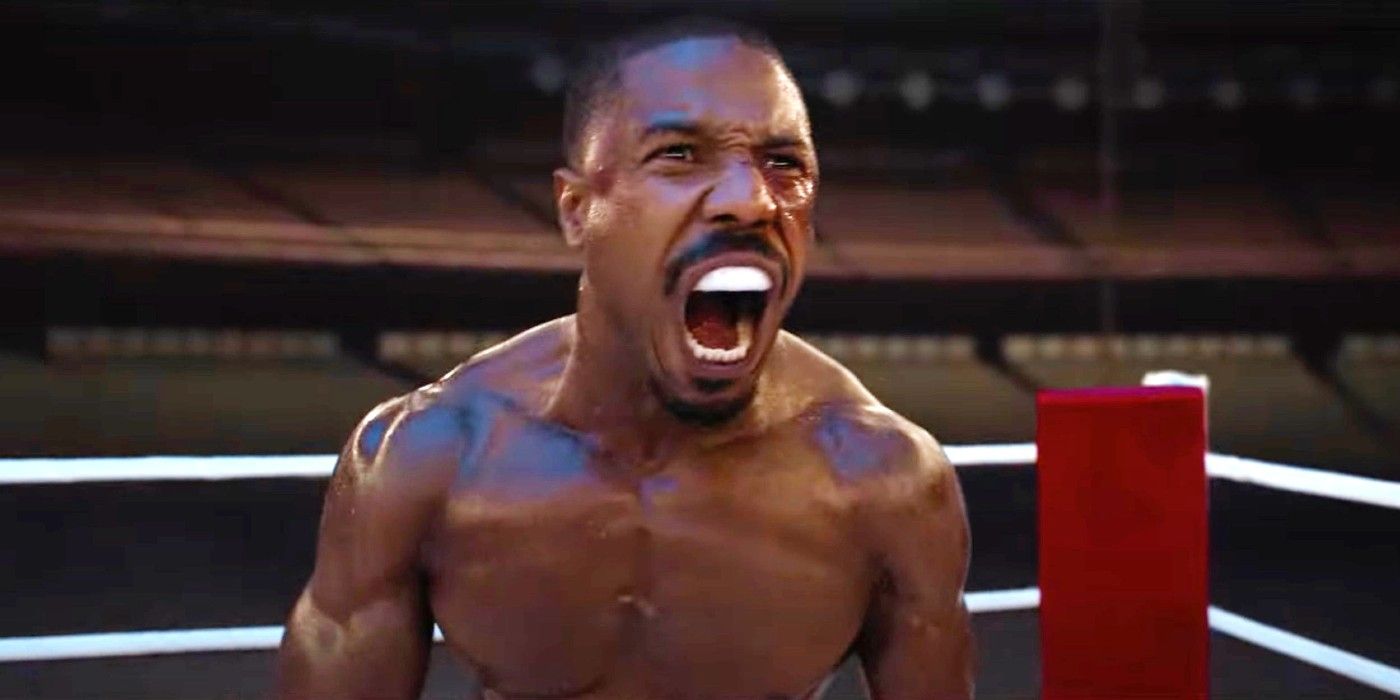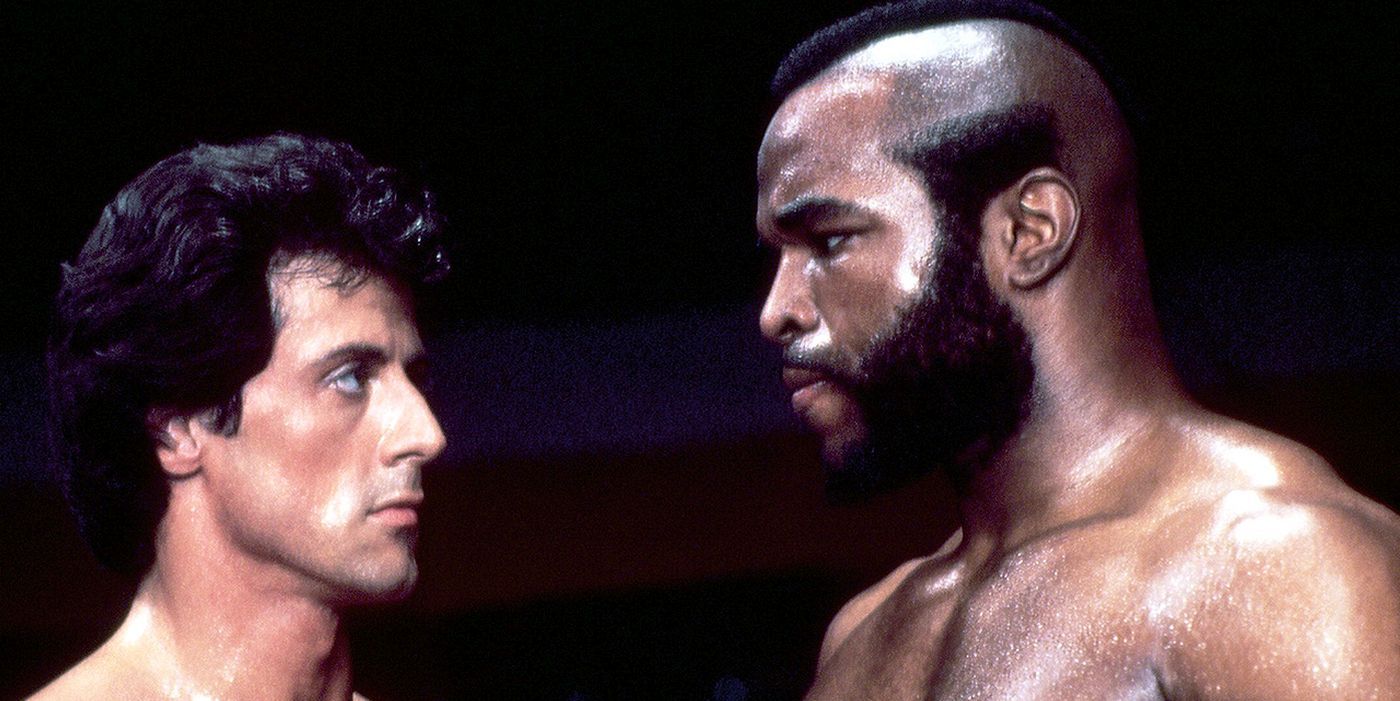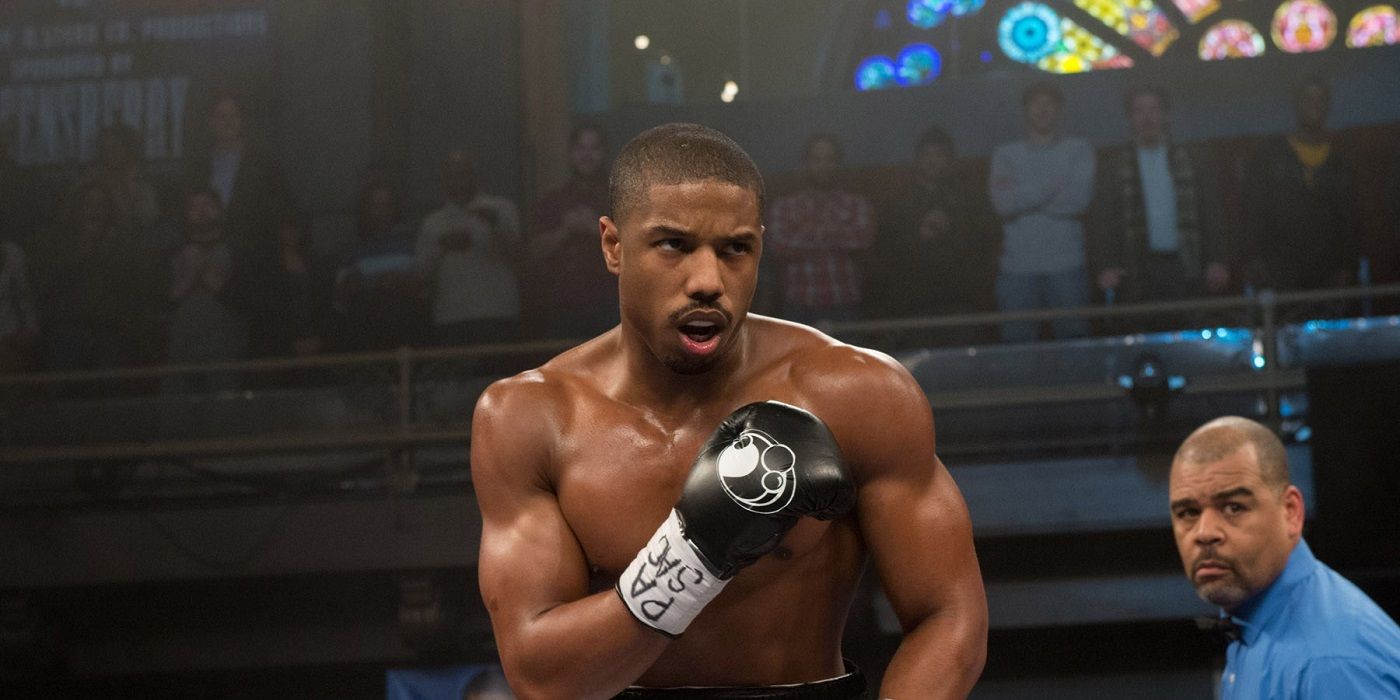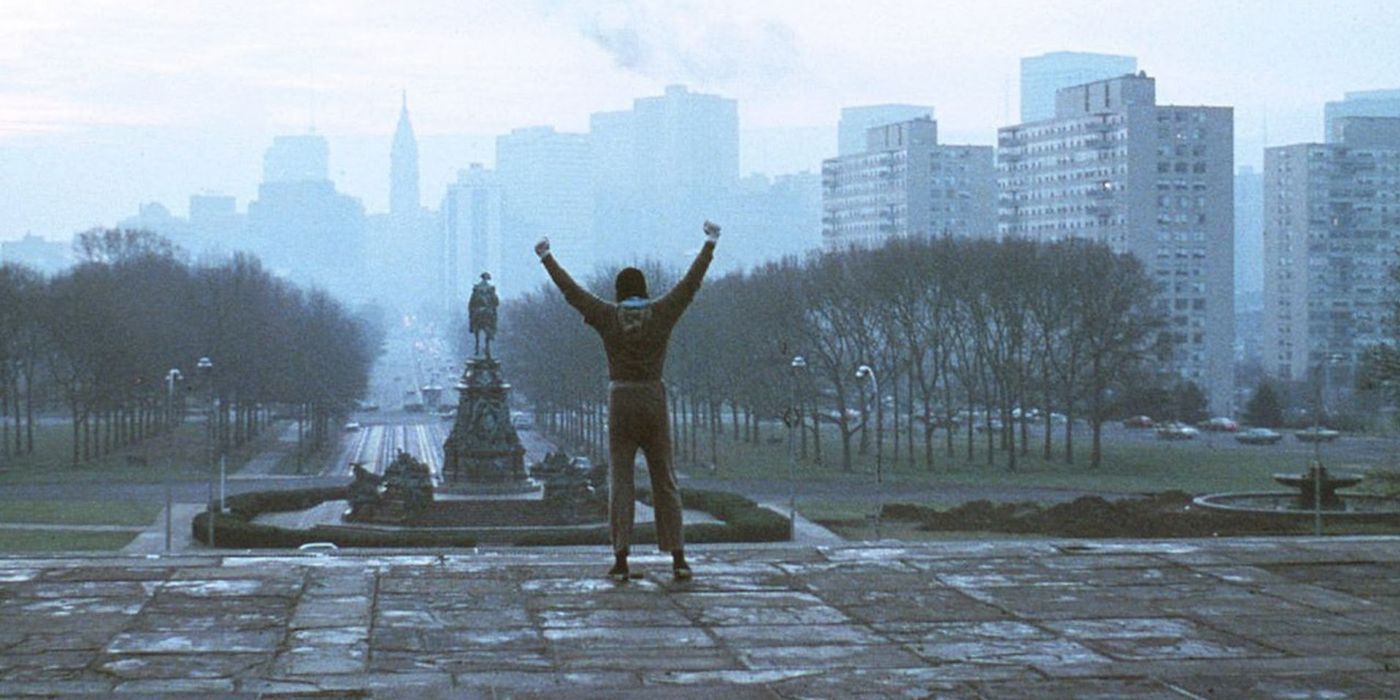[ad_1]
Which is the best Rocky or Creed movie? With Creed III bringing the story full circle, the Rocky franchise now spans 9 films from 1976 to 2023 and ranking them is a reminder of just how incredible most of the entries have been. The release of Michael B Jordan’s third Rocky spin-off continued the frankly incredible feat of there being a Rocky/Creed movie released every decade since 1976. That’s the kind of longevity only matched by Sylvester Stallone’s affable boxer in his extended career.
Initially the brainchild of Sylvester Stallone, the franchise was handed over to Michael B Jordan, after Ryan Coogler breathed new life into Rocky with Creed. And while Stallone stepped aside for Creed III in 2023, Philadelphia’s most famous sporting icon will continue to cast his shadow over this movie series for as long as it continues. And judging by the continued success, there will be more to come from Jordan’s heavyweight champion. From the seedy streets of South Philadelphia to the heavyweight championship of the world and back again, here’s Screen Rant’s complete ranking of the Rocky and Creed movie saga.
9 Rocky V (1990)
Rocky V was intended to be the conclusion to the Rocky story; the original film’s director John G. Avildsen even returned to helm the fifth chapter. Rocky is forced to retire from the ring after being diagnosed with brain damage thanks to his fight with Ivan Drago. Balboa then promptly discovers he was swindled out of his fortune, forcing him and his family to return to his old South Philly neighborhood.
The film is really a tale of a son feeling neglected by his father; Sly’s real-life son Sage Stallone plays Rocky Jr., who craves his father’s attention, but Rocky is distracted by training a protege, Tommy Gunn (Tommy Morrison). However, Tommy falls under the sway of the Don King-like promoter George Washington Duke (Richard Gant), who turns Gunn against Rocky. Rocky V ends with a literal street fight between Rocky and Tommy where Rocky emerges victorious and wins back his son’s love.
The fifth film awkwardly tries to mirror the original Rocky as closely as possible while introducing “current” elements like rap music, but much of it is a gross miscalculation. Rocky V is also the final appearance of Talia Shire as Rocky’s wife Adrian. Ultimately, Rocky V‘s biggest fault is that Rocky is unwittingly turned into a villain; his infatuation with living vicariously through Tommy so that he constantly ignores his son made Rocky unlikable for the first time.
Even though Rocky does realize the error of his ways and ends the film by taking Rocky Jr. up the steps of the Philadelphia Art Museum, Rocky V is simply a bad film and a limp ending to the saga of Rocky Balboa – something not just the fans but Stallone himself felt keenly. Luckily, he was able to rectify Rocky V’s mistake with a successful sixth Rocky film 16 years later.
8 Rocky II (1979)
In Rocky II, Stallone, who took over as the director as well as continuing as writer, stuck as closely to the original’s formula as possible. Picking up immediately after the fight between Rocky and Apollo Creed (Carl Weathers), both fighters are rushed to the hospital and deal with the aftermath of their epic fight in their own ways. Rocky marries Adrian and prepares to start a family but finds, even with the fame and payday he earned from the fight, his career options were limited due to his lack of education.
Meanwhile, Apollo is consumed with not being able to definitively beat Rocky and relentlessly goads him into a rematch, but Adrian and Rocky’s trainer Mickey (Burgess Meredith) fear for Rocky’s health. After she recovers from a coma related to childbirth, Adrian urges Rocky to fight Apollo and “win!” – which he does. Rocky beats Apollo to become heavyweight champion of the world.
The Oscar-winning box office success of Rocky was a tough act to follow, but Rocky II gets credit for moving the story forward and realistically analyzing Rocky’s problems trying to find a way to support his family without fighting. Apollo’s rage and the lengths he goes to in order to embarrass Rocky to agree to a rematch are also entertaining.
However, much of Rocky II merely rehashes of the high points of the original, including Rocky’s training montage being tweaked so that the children of Philadelphia accompany Rocky on his run, and Stallone builds to Rocky winning it all in the end, rather than being satisfied with a moral victory. The film is mainly memorable for the final image of a bloody and battered Rocky holding up the championship and yelling “Yo Adrian! I did it!”, but Rocky II does open the door for the saga’s continuation.
7 Rocky Balboa (2006)
16 years after Rocky V, Rocky Balboa improbably returned to the ring and it was a triumph. Now in his late-fifties, Rocky has lost his wife Adrian to cancer and runs a restaurant in South Philly. However, a confluence of events inspires a restless Rocky (who feels he still has “stuff in the basement”) to return to the ring, mainly because an ESPN computer simulation predicted that Rocky in his prime would have defeated the unpopular current heavyweight champion Mason Dixon (Antonio Tarver).
Rocky Balboa continues Rocky’s problems with his now-adult son Robert (Milo Ventimiglia), who still blames his famous dad for his personal failures. Eventually, father and son reconcile and Robert joins his uncle Paulie (Burt Young) and Rocky’s longtime trainer Duke (Tony Burton) in his dad’s corner as he faces Dixon in a charity exhibition. Despite his advanced age and physical issues, Rocky fights like the Balboa of old and takes the champ to the limit, losing by split decision, but proving to everyone and himself that he is still Rocky Balboa.
Stallone was admittedly unhappy with how Rocky V turned out and fought for over a decade to get another Rocky movie made, which he based on the highs and lows of his own film career. Rocky Balboa retcons the potentially lethal brain damage that forced Balboa to retire in Rocky V and notably features the final appearance of Burt Young as Paulie. Overall, Rocky Balboa is a well-made film that proves Stallone fully understands the innate appeal of Rocky. The film relies on nostalgia and Rocky’s status as an inspiration. Despite how improbable it is for a fighter of Balboa’s age to go the distance with the younger heavyweight champion, the film restores Rocky to his glory days while providing a proper ending to his in-ring career.
6 Rocky IV (1985)
USA vs. Russia is the basic theme of Rocky IV, the most cartoonish entry of the franchise. Rocky is still the heavyweight champion but it’s Apollo who wants to get back in the ring to face the Russian national champion Ivan Drago (Dolph Lundgren). Rocky agrees to train Apollo to face the towering Russian but is forced to watch as Drago, a steroid-enhanced monster, murders Apollo during their exhibition match. After burying his best friend, Rocky vows revenge. He travels to Russia to train and then faces Drago on his home turf, defeating him in a brutal 15-round fight in front of the Premier of the Soviet Union. Rocky’s performance is so valiant, the pro-Drago fans in Russia are cheering “Rocky!” by the end.
At 90 minutes and replete with multiple MTV-style music video montages, Rocky IV almost barely qualifies as a movie. Stallone’s story is paint-by-numbers and Rocky’s climactic speech where he urges an end to the Cold War, which gets a standing ovation from the Russian Premier, is frankly absurd. And yet, Rocky IV is entertaining and memorable. Killing off the popular Apollo (after an appearance by James Brown singing “Living in America”) was a bold move, a bearded Rocky’s rousing training montages in (set to “Hearts on Fire”) and his fight with Drago (set to the music of Vince DiCola) are unforgettable, and Dolph Lundgren is an iconic villain.
Rocky IV‘s importance to the franchise was cemented by Creed since it’s Apollo’s death that inspires his son Adonis to his own fighting career. Moreso, Creed II tells the tale of the sons of Creed and Drago finishing the fight that began with their fathers in Rocky IV.
5 Creed II
Three years after making his name by going the distance with Ricky Conlan, Adonis Creed (Michael B. Jordan) becomes the heavyweight champion of the world, just like his father Apollo and his mentor Rocky Balboa. His first challenge comes from Russia: Viktor Drago (Florian Munteanu), the son of Ivan Drago, who killed Apollo in the ring in 1985. When Rocky refuses to train Adonis, he takes the fight anyway and is humiliated by Viktor.
As he spends the next several months healing physically and emotionally, Adonis welcomes the birth of his daughter with his fiancee Bianca (Tessa Thompson). Finally, Rocky returns to train Adonis for his rematch with Viktor, taking him to the California desert to replicate the conditions with which Rocky trained for his fight with Ivan. Adonis faces Viktor again in Russia and despite being badly beaten, Creed outlasts Drago and does enough damage to force Ivan to throw in the towel for his son. At last, Adonis has avenged the death of his father just as Rocky did in 1985.
For Creed II, Stephen Caple Jr. took over the director’s chair from Ryan Coogler. Stallone and Juel Taylor’s screenplay turned Creed II into an amalgam of the first three Rocky sequels: Adonis’ adjustment to marital bliss and parenthood with Bianca echoed Rocky marrying Adrian after his first fight with Apollo, his emotional struggle after Drago broke him in body and spirit mirrored Rocky’s self-doubt in Rocky III, and the final fight with Viktor is pure Rocky IV, with several returning characters.
Ultimately, Adonis emerges from Creed II as his own man, not quite his father but also not a carbon copy of Rocky. Creed II has powerful dramatic moments and seems to wrap up all of the lingering plot threads of the franchise, including Rocky beating cancer and reuniting with Robert and meeting his grandson. After Creed II, the franchise now seems poised to explore new territory for the first time since Rocky III.
4 Creed III (2023)
If Creed II set up Michael B Jordan’s Adonis Creed as his own man, Creed III landed the knock-out punch for that important transition. Dropping Sylvester Stallone’s powerhouse presence out entirely, apart from a single reference, Jordan’s directorial debut replaces Rocky’s zeitgeist-setting underdog story with a perversely dark mirror. Introducing Jonathan Majors’ antagonist “Diamond” Damian Anderson proves to be a masterstroke: he is Rocky’s stand-in, a boxer with a dream whose life robbed him of his opportunity. But the similarities die there.
Anderson is more Clubber Lang than Balboa, flipping Adonis Creed’s life and the idea of the underdog handed an unbelievable title shot on their heads. Majors is obnoxious, endearing and entirely captivating, and Jordan continues the measured, difficult exploration of the interior of traditional masculinity first set out in Creed II. The handling of Rocky’s absence is a little distasteful, given how important all of his life lessons are, but Jordan’s direction is bold and brave, adding a poetry to the climatic fight never seen in this franchise.
The actor/director also introduces a stunningly effective filming technique in the ring that makes Creed III‘s boxing sequences visceral and ugly, contrasting the balletic beauty still etched in there too. There’s a lot more to Creed III than just conflict, or just a sports movie, and it’s a good reminder – if ever it were needed – that this franchise has always been about bigger issues than the seconds between the bells ringing.
3 Rocky III (1982)
Rocky III is a soft reboot that completely altered the course of the franchise. A total departure in style and tone from the first two films, Rocky III nevertheless reinvigorated the saga and helped usher it into the 1980s. In the three years since becoming heavyweight champion, Rocky Balboa has had ten successful title defenses and became a wealthy media darling.
In the process, Rocky “got civilized” and lost “the Eye of the Tiger”, the desire to fight and win that made him dangerous, which is something his arrogant and hungry top contender Clubber Lang (Mr. T) wants to capitalize on. When his mentor Mickey Goldmill (Burgess Meredith) dies from a heart attack, Rocky suffers a humiliating defeat and loses the title to Clubber. Enter Apollo Creed, Rocky’s original nemesis, who becomes his best friend and trains Balboa to regain his missing “Eye of the Tiger” and defeat Lang in a rematch to become a two-time champion. In return, Apollo demanded a favor: a private rematch with Rocky.
Aside from the original film, Rocky III is arguably the most pivotal chapter of the franchise. It made some of the biggest changes to the saga which reverberated throughout the ’80s: Rocky is physically transformed to be smarter, more muscular, and more handsome than he was in the first two films, echoing Stallone’s interest in bodybuilding; the film’s editing and pacing reflected the rise of MTV and music videos; Stallone killed off Mickey and replaced him with Apollo as Rocky’s mentor; the film launched the careers of Mr. T and Hulk Hogan, who appeared as pro-wrestling champion Thunderlips; and the song “Eye of the Tiger” by Survivor became a chart-topping hit.
As Clubber Lang, Mr. T was a fearsome adversary who is arguably the best pure villain of the franchise. Rocky III also turned Apollo’s American flag trunks into an heirloom, passed from Apollo to Rocky (briefly to Tommy Gunn in Rocky V) to Adonis Creed. While the film is cartoonishly simplistic compared to the Oscar-winning original, Rocky III is perfectly emblematic of the excesses of the 1980s. With this third chapter, Stallone turned Rocky into an enduring pop culture phenomenon.
2 Creed (2015)
When Apollo Creed died in the ring in 1985, he left behind a son he never knew. In Creed, Adonis Johnson (Michael B. Jordan) decides to give up a promising business career to follow in his famous father’s footsteps and become a fighter. Traveling to Philadelphia, Adonis seeks out Apollo’s best friend and greatest opponent, Rocky Balboa.
Reluctant at first to train Adonis, Rocky eventually steps in the younger Creed’s corner and helps guide him into his career before Balboa learns he’s diagnosed with non-Hodgkin’s lymphoma. Meanwhile, Adonis falls in love a singer named Bianca and, after it’s made public that he’s the son of Apollo Creed, Adonis receives a challenge from Ricky Conlan, the world light heavyweight champion. With the ailing Rocky training him, Adonis accepts his father’s mantle and surname. He fights and goes the distance with Conlin, losing by split decision but proving himself worthy of the Creed name.
Successfully doubling as a sequel and a reboot, Creed is a miraculous film that resurrected the Rocky franchise while shifting the focus to the magnetic Michael B. Jordan as its new main character. Directed and co-written by Ryan Coogler, Creed respectfully embraced the tried-and-true Rocky tropes and breathed new life into the saga, creating a means for the story to continue. The film was critically well-received with a 95% Rotten Tomatoes rating and Stallone earned a Best Supporting Actor Academy Award nomination for his poignant portrayal of the elderly Rocky Balboa – his first Oscar nod since the original Rocky in 1976. For longtime fans of the franchise, Creed also finally answered the question of the 33-year-old cliffhanger that ended Rocky III: Who won the secret third fight between Rocky and Apollo? (It was Creed.)
1 Rocky (1976)
The original Rocky is one of the greatest sports films and rags-to-riches story ever. A down-on-his-luck club fighter, Rocky Balboa receives a once-in-a-lifetime shot when the heavyweight champion of the world, Apollo Creed, decides to make him his next opponent simply because he likes Rocky’s nickname, “The Italian Stallion”. Believing he’ll be humiliated, Rocky refuses the fight at first, instead focusing on his budding romance with Adrian, the woman he loves.
The film also explores Rocky’s relationship with Mickey Goldmill, the crusty old trainer who spurns him as “a bum” but realizes that by training Rocky, it could be the only chance at redemption for both of them. Finally, with Mickey in his corner, Rocky trains for the fight, but his goal isn’t to win but merely “to go the distance” with Creed. Rocky goes on to shock Apollo, who took him lightly, by going the full 15 rounds with the champ, losing by split decision but proving to himself he’s not “a bum”.
Rocky won the Academy Award for Best Picture of 1976 and Best Director for John G. Avildsen, while Stallone earned a nomination for Best Actor and Best Screenplay (which he famously wrote in three days for him to star in). Rocky‘s inspirational score by Bill Conti has also become iconic, especially “Gonna Fly Now”, which accompanied Balboa during his training montage that concluded with the unforgettable image of Rocky running up the steps of the Philadelphia Art Museum and raising his arms in a victory pose. The Rocky formula has also inspired numerous films, most notably The Karate Kid franchise. Most of all, over four decades later, Rocky stands the test of time as a truly great film that is still as heartfelt and stirring as ever.
[ad_2]
Source link

